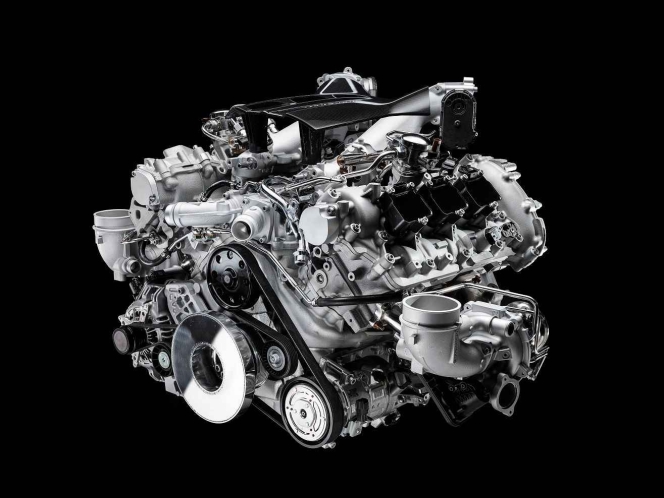
After twenty years, Maserati has once again taken on the challenge of returning to its Modena HQ with the development and production of a new, highly-technological, high-performance engine - MC20.
The new engine that adopts F1 technology for a road car, will make its world premiere in September. At the launch, new models will be revealed, which will go into production in the coming years, and innovative propulsion systems as well as ambitious programmes developed by the Casa del Tridente will be announced. The new power unit is a V90° architecture, with a 3-litre, 6-cylinder twin-turbo, and features a dry sump (a classic solution on super sports cars). It delivers 630CV (USA 621 hp) at 7500rpm and 730 Nm (USA 538 pound feet) of torque from 3000rpm with a specific power output of 210CV/litre. The compression ratio is 11:1, the stroke is 82 mm and the bore 88 mm.
The soul of the engine is the innovative pre-chamber combustion system featuring twin-spark plugs. This technology is derived from Formula 1 and is now available, for the first time, on an engine destined for the road.
Engine Specs
Engine Architecture V6 90°
Total displacement 3.0 l
Bore / Stroke 88 x 82 mm
Compression Ratio 11: 1
Firing Order 1-6-3-4-2-5
Max Power 630CV @ 7500 rpm (USA 621 hp)
Max Torque 730 Nm @ 3000 – 5500 rpm (USA 538 pound feet)
Engine Max Revs 8000 rpm
Turbochargers Twin Side Turbo with electronic actuated Waste Gate
Ignition System Twin Spark with passive prechamber
Lubrication pump Fully variable oil pump
Lubrication system Dry sump with scavenge pumps & external oil tank
Fuel System PDI (Direct Injection 350bar + Port Injection 6bar)
(USA 5076 psi + Port Injection 87 psi)
Valvetrain & Timing Double Over Head Camshaft with variable valve timing
Engine Width 1000 mm
Engine Height 650 mm
Engine Length 600 mm
Engine Mass (as per DIN GZ) <220 kg (USA 485 lbs)
Emission Level EU6D/China 6B/Ulev 70
Features
The pre-chamber: a combustion chamber is set between the central electrode and the traditional combustion chamber and connected by a series of specially-designed holes.
Lateral sparkplug: a traditional sparkplug acts as a support to ensure constant combustion when the engine is operating at a level that doesn’t need the pre-chamber to kick in.
Twin injection system – direct and indirect: linked to the fuel supply pressure at 350bar, (USA 5076 psi), the system reduces noise low down on the rev range, lowering emissions and improving consumption. (MT)
Maruti Suzuki India Charts Ambitious Future With Expanded Focus On EVs, Drones, Mobility Solutions & Sustainability
- By MT Bureau
- August 01, 2025
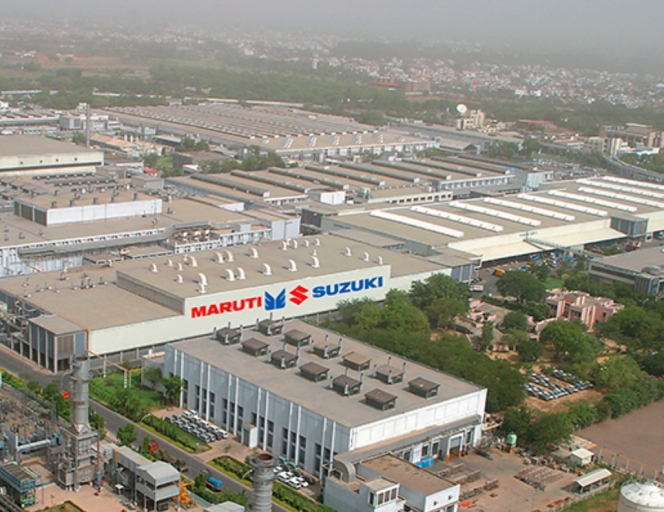
In a clear signal of its strategic intent to diversify and future-proof its business, Maruti Suzuki India’s Board of Directors have agreed to amend its Memorandum of Association (MoA) to enable expansion into a wide array of new-age mobility, sustainability and technology-driven segments.
The amendments go beyond just manufacturing and selling passenger vehicles, and now includes buses, vans, lorries, motorcycles, scooters and other motor-powered vehicles, as well as amphibious vehicles and those capable of travel on land, sea, air or any combination thereof. The scope also covers the production and sale of drones, unmanned aerial vehicles (UAVs) and unmanned aircraft systems (UAS), along with all associated components, accessories and technologies.
Additionally, the company may establish and operate facilities for testing, training and data processing to support its manufacturing and technology-driven activities.
The amended charter outlines a significantly broadened scope, allowing the company to manufacture and deal in a comprehensive range of vehicles – from traditional automobiles to drones, unmanned aerial systems (UAS) and amphibious vehicles. This move opens up potential entry into emerging sectors such as aerial mobility and defence-grade UAV systems.
A key focus area is the electric mobility ecosystem. Maruti Suzuki India plans to develop and operate EV charging and battery swapping infrastructure, as well as engage in trading and distribution of alternative fuels such as compressed biogas and hydrogen. This aligns with India's push towards decarbonisation and adoption of cleaner transport.
On the sustainability front, Maruti Suzuki India aims to build capabilities in recycling and repurposing end-of-life vehicles (ELVs) and industrial scrap, including metals, plastics and e-waste. It also plans to trade in carbon credits and renewable energy certificates, suggesting a move to integrate environmental instruments into its business model.
The amendments also allow Maruti Suzuki India to offer consultancy and R&D services in vehicle engineering, testing and certification, while supporting clients and regulators with testing grounds and infrastructure. Additionally, it can now provide supply chain, logistics and IT services – potentially transforming into a full-spectrum mobility and services enterprise.
With this expansive update to its foundational objectives, Maruti Suzuki India is preparing to transition from a conventional automotive business into a multifaceted mobility and sustainability-focused organisation, capitalising on upcoming opportunities in electrification, circular economy and next-gen transport.
Aumovio To Make Maiden Debut At IAA Mobility, To Showcase Technologies For Future
- By MT Bureau
- July 31, 2025
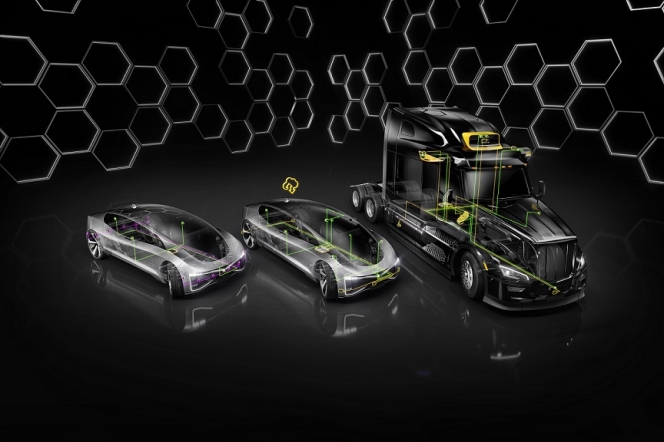
Continental's Automotive group sector will officially debut as the new, independent company Aumovio at IAA Mobility 2025 in Munich this September. The newly formed technology and electronics firm, which consolidates Continental's automotive expertise into a more agile structure, will showcase its innovations from 9 September to 12 September.
Under the leadership of CEO Philipp von Hirschheydt, Aumovio will present its technologies in four themed areas: safe, inspiring, connected and autonomous. The company's goal is to shape the future of mobility by focusing on key technologies.
Highlights from Aumovio's exhibition will include:
Green Electric Caliper: An energy-saving brake module designed for electric vehicles, which is lighter than conventional calipers and doesn't require hydraulic fluid. It is designed to increase a vehicle's range, lower costs and minimise carbon emissions.
Next-Generation Corner Module: A compact chassis unit that integrates the engine, brake system, steering, and suspension. This system's ‘by-wire’ architecture and 150-degree wheel-specific steering are optimised for software-defined vehicles, offering greater manoeuvrability and design freedom.
Xelve System: A scalable, modular hardware and software system for assisted and automated driving (Level 2 to Level 4). The system is customisable for a wide range of vehicles and includes functions for automated parking and AI-supported driving.
Road to Cloud Platform: An integrated platform that provides a complete infrastructure for manufacturers to develop and operate software-defined vehicles, including standardized operating systems, over-the-air updates and cybersecurity.
JSW Motors Partners KPIT Tech For Software And Digital Capabilities
- By MT Bureau
- July 30, 2025
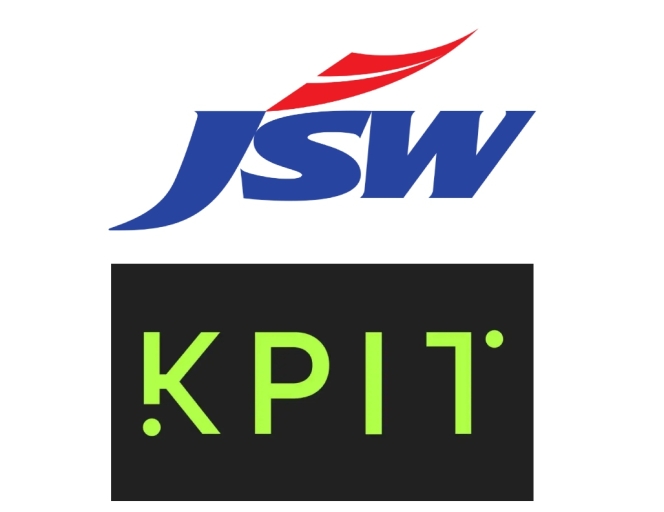
JSW Motors, the new business vertical of the JSW Group, has inked a strategic partnership with KPIT Technologies, which it shared aims to redefine future mobility in India.
The partnership will leverage KPIT’s expertise in software and systems development to strengthen JSW Motors’ vision to disrupt the domestic automotive market through innovation and global collaboration.
For the unversed, JSW Motors is investing USD 3 billion over the next five years to develop and manufacture electric, hybrid and plug-in hybrid vehicles in India. The company’s first New Energy Vehicle (NEV) is set to debut on the Indian roads in the second half of FY2026. It is also establishing a manufacturing hub spread across 630 acres in Bidkin, Maharashtra.
Kishor Patil, CEO & MD, KPIT Technologies, said, “KPIT is proud to partner with JSW Motors in their ambitious journey to transform India’s automotive landscape. Our experience across global vehicle programs and SDV positions us uniquely to contribute to JSW’s vision. This partnership reflects our strategic focus on the Indian market and our commitment to delivering cutting-edge technology that enhances customer experiences and accelerates clean mobility. The partnership will include KPIT bringing advanced competencies in electric propulsion systems, battery innovation, and SDV architectures that enables continuous feature upgrades and superior consumer experiences.”
Ranjan Nayak, CEO of JSW Motors, said, “We plan to build world-class automotive products in India by integrating the best of technologies from across the globe. KPIT’s expertise in software and systems development is a cornerstone of our strategy to deliver best-in-class, technologically-advanced, high-performance, and sustainable vehicles. Together, we aim to energise the Indian auto ecosystem and set new benchmarks for innovation and customer satisfaction. Leveraging its global best practices and technical capabilities, KPIT will set-up a dedicated center of excellence for JSW Motors.”
- Suzuki R&D Center India
- Suzuki Motor Corporation
- Air Cargo Forum India
- Innovatopia Awards
- Keku Gazder
- Masahiro Ikuma
Suzuki R&D Centre India Wins Sustainability Award for Air Cargo Innovation
- By MT Bureau
- July 30, 2025
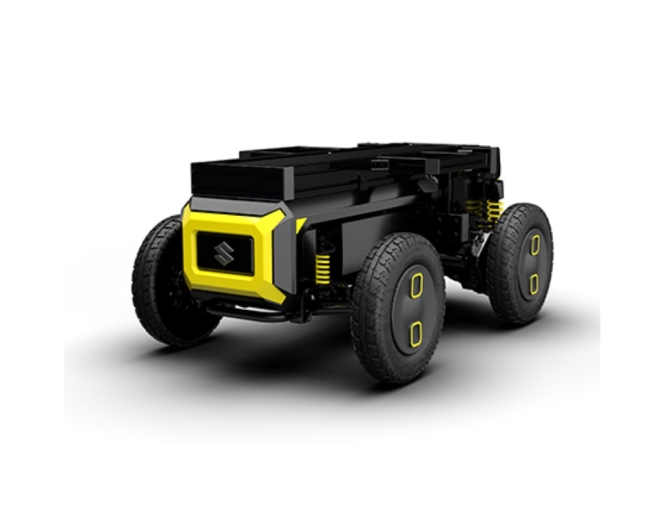
Suzuki R&D Center India (SRDI), a subsidiary of Suzuki Motor Corporation, has won the Grand Prize in the ‘Sustainability & Go Green efforts’ category at the recently held Innovatopia Awards in New Delhi in July 2025. The event was organised by the Air Cargo Forum India (ACFI).
The company was recognised for its proposal to use Suzuki’s Versatile micro e-Mobility Platform concept to address operational and environmental challenges in India’s airport cargo sector. The idea focused on improving the efficiency and automation of cargo transport at airports while reducing CO2 emissions by replacing diesel-powered tow tractors.
Suzuki’s micro e-mobility platform, originally developed using motorised wheelchair technology, is used as a base for various robotic applications. The company is exploring its use across sectors such as agriculture, logistics, and home delivery and in this case, for air cargo operations.
Keku Gazder, Board Member of ACFI, said, "SRDI's recognition at the ‘Innovatopia Awards’ for ‘Sustainability and Go Green efforts’ is a testament to the power of cross-sector innovation. As the only non-air cargo company honoured at the ACFI Conclave 2025, their work reflects a shared commitment to a greener future. "
Masahiro Ikuma, Managing Director, SRDI, said, "Suzuki aims for an infrastructure mobility closely connected with people’s lives, and is working to solve social issues in India through diverse mobility solutions. By utilising the versatile micro e-Mobility Platform concept, we aim to deepen our partnership with the air cargo industry and address emerging social challenges through innovative solutions in India."
Suzuki and SRDI plan to continue studying ways to implement the proposal.


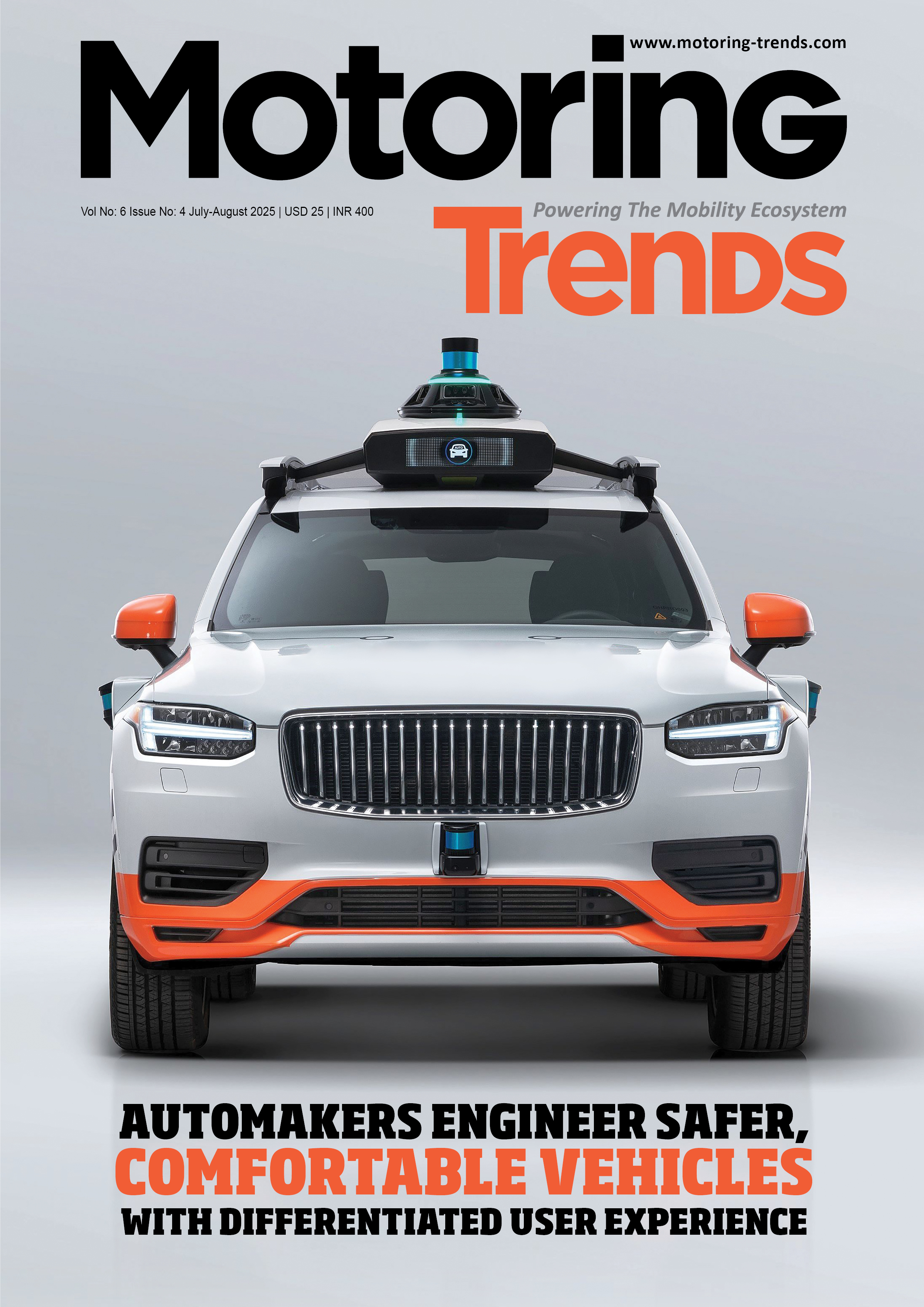
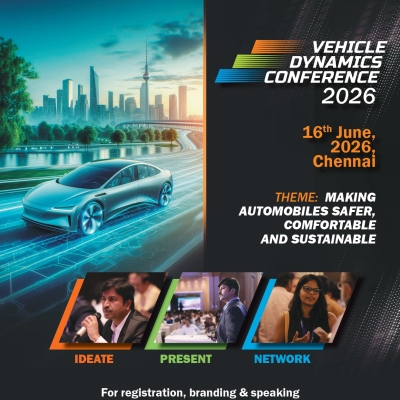
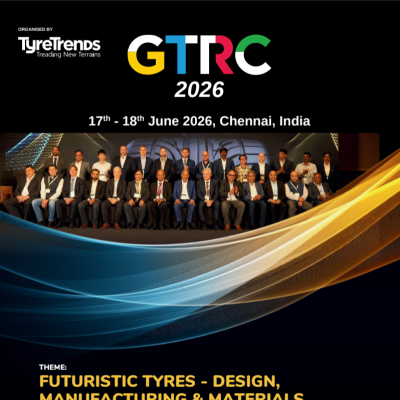
Comments (0)
ADD COMMENT